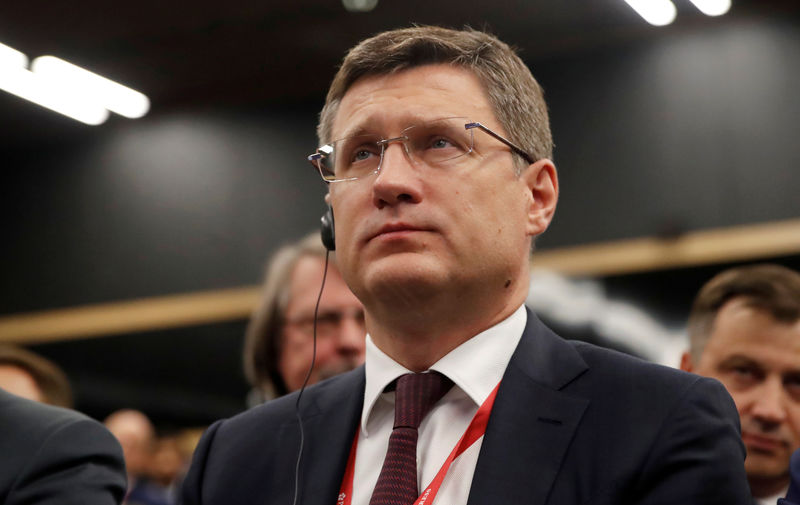By Vladimir Soldatkin
ST PETERSBURG (Reuters) - Uncertainty over global oil demand in the second half of this year, including the effect of U.S. sanctions, will have a big impact on whether Russia backs extending a deal on oil output cuts, Russian Energy Minister Alexander Novak said on Monday.
The Organisation of the Petroleum Exporting Countries and other leading oil producers have an agreement to cut their combined oil output but this expires at the end of this month. Talks on whether to extend the pact are scheduled for July 1-2 in Vienna.
Speaking to reporters on the sidelines of an energy forum in St Petersburg, Novak, when asked about an extension of the deal between OPEC and non-OPEC oil producers, said: "It's too early to say."
"We need to wait for, among other things, the G20 heads of state meeting. Let's see what questions they discuss there, how the economy develops, the situation on the market," Novak told reporters.
The G20 heads of state meet in the Japanese city of Osaka later this week.
Asked what factors were proving hard to predict when weighing the future of the output cut deal, Novak said: "The consumption of oil in the third and fourth quarters, the pace of growth of the world economy, the world's biggest economies."
"Also the influence of sanctions restrictions on the world market. We need to clearly understand what that will influence, and how, and what the consequences will be," Novak said.
U.S. sanctions on Iran, coupled with existing sanctions on Venezuela, are expected to reduce crude supplies reaching the global oil market.
Referring to the meeting in Vienna on July 1-2, Novak said: "By the time of the OPEC/non-OPEC meeting we will have a clear understanding of the situation, options will be proposed. Now I don't want to say anything, because nothing has changed."

Earlier, Novak said the pact so far had been a successful example of international co-operation stabilising oil markets, and that continued cooperation was more important now than ever before.